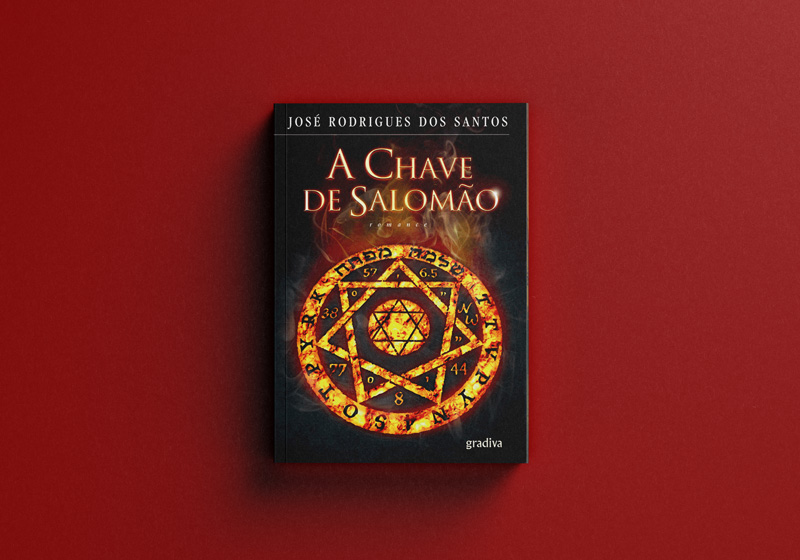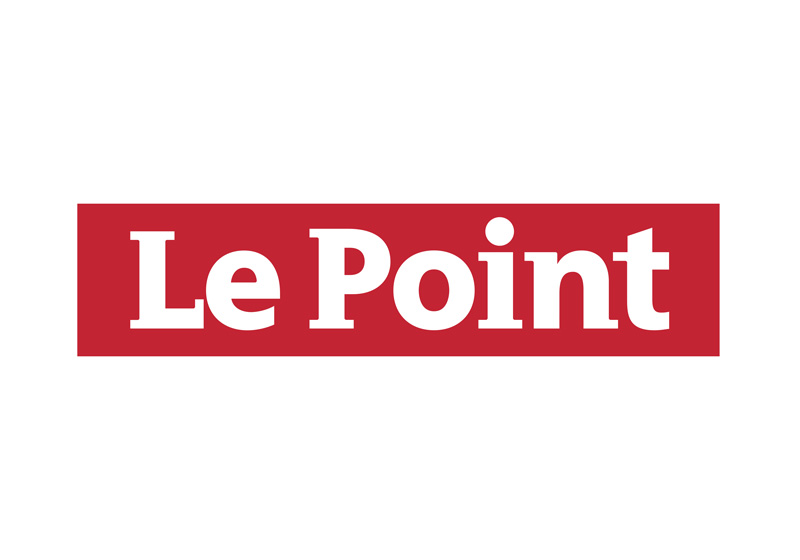Interview The Key of Solomon for Visão
Was The Key of Solomon a harder book to write when compared to all your other novels?
JRS: Not harder to write, but harder to research. The novel’s subject is a very intricate one and my great challenge was to use the clearest language possible to convey a subject of deep complexity. I had to understand and master the subject and to do that I had to research it a lot.
- In this instance, the scientific subject of your novel is quantum physics, which is a very hard subject.
JRS: It’s difficult to use the language of physics in a novel. If on the other hand we use a more colloquial language and if we manage to convey the mystery surrounding scientific discoveries, we can create a page-turner. What scientists have discovered is that a particle can be, and actually is, simultaneously in several places. I mean, the same particle. And it’s not divided. It’s 100 per cent here and 100 per cent there. They also found that the universe is all connected, that a particle on one side of the universe instantly affects a particle on the other side of the universe. This is the closest to magic that one can imagine, and yet it’s not imagination. These are actual scientific discoveries. Physics tells us as well that reality only exists if there is someone observing it, meaning that the observation partly creates reality. When it is not being observed, reality is nothing but what Einstein called a “ghost field”. These are strange and mysterious findings which many scientists avoid talking about because they feel this stuff can easily become metaphysical.
- You mean, mystical?
JRS: Physics Nobel laureate Werner Heisenberg wrote about that. These scientific findings have an inherent mystical depth which I find very interesting indeed.
- Isn’t there the risk that the reader gets confused by what is fiction and what is not?
JRS: The separation between fiction and non-fiction is very clear in my novels. If Tomás kisses a girl, everyone understands it’s fiction. But if he’s discussing the two-slit experiment, everyone understands it’s non-fiction. Very seldom do readers become confused over this separation. We have here a fictional plot that uses non-fictional scientific and historical information.
- But there are esoterical details. The actual Key of Solomon is connected to magic.
JRS: Yeah, but it’s a real manuscript that helps the fictional plot to unravel. If we say that this is a novel on physics, we are not being accurate. The Key of Solomon is a novel about consciousness, reality, the existence or inexistence of the soul, and the meaning of life. It touches on subjects such as: what happens when we die? There are relevant medical studies according to which up to 23 percent of patients with a cardiac crisis have near-death experiences. It is much more frequent than people would think, but patients who undergo such experiences avoid talking about it. But how does science explain them? That’s what this novel is all about.
- How did you get the idea of writing about this subject?
JRS: What happens when we die is something that has always interested me. Some years ago, when I wrote The Einstein Enigma, I thought about writing on this. But it was only three years ago, when I read in detail the two-slit experiment, that I realized the odd links between reality and consciousness. The two-slit experiment is the most mysterious scientific experiment ever done, as it suggests that reality is created by consciousness. Without consciousness, things do not exist per se. Learning about that experiment was the trigger that lead me to write this novel. When Einstein jokingly said that the un-observed reality is nothing but a ghost, he was establishing a deeper truth than he ever imagined.
- Where did you get your interest in science?
JRS: Science for me is a dialogue between us and nature. By carrying out experiments we establish a conversation with nature. The experiment is a question we ask, its result is the answer we got. If God exists, He is nature, He is everything around us, including us. We talk to Him through science.
- Do you see yourself as a popularizer of science?
JRS: Not so. Science is nothing but a tool. What actually interests me is truth and reality. I enjoy reading Philip Roth because he’s obsessed with truth, no matter how politically incorrect. I am not interested in writing a mere boy-meets-girl story. There are thousands of books like that. What interests me is telling a story through which we get a glimpse of truth and reality. I use fiction as an instrument to reach truth.
- What do you know about people who read you?
JRS: My public is very diversified. It’s true that people who read books are special. They are cultured. But there are different reading publics – and I get them all. Scientists, historians, doctors, farmers, civil construction workers, unemployed people, teenagers, housewives… you name it. The manager of a bookshop once told me that my novels are the only ones in his shop that sell as well on Father’s Day and on Mother’s Day. You find in them the love and human interest stories that attract many women, but also the non-fictional side that seduces many men.
- Do you have fan clubs?
JRS: I do in France. They even started a Facebook page.
- Your discipline at work is well-known…
JRS: I have to be disciplined. But I’m not in the army, you know. I only write when I feel like it. The thing is, I always feel like it. If I could, I would spend all mornings, afternoons and evenings writing.
- Where does that pleasure come from?
JRS: It comes from the feeling of being free. I enjoy using fiction to tell the truth, to travel to other places and other times, to present ideas. It’s exhilarating.
- Would you have the same pleasure if you had no readers?
JRS: Probably not. Any author who says he does not care about readers either is unbalanced or is lying. All authors want readers. If not, they would simply write and not bother to publish. No writer is an island and readers are important, especially when we decisively influence their lives. A few days ago I got an email from a reader in France who told me that my novel The Einstein Enigma had cured him. He apparently had a depression and he found that the book answered all the questions that were causing his depression, so by the end of the reading he was cured. Amazing, isn’t it?



